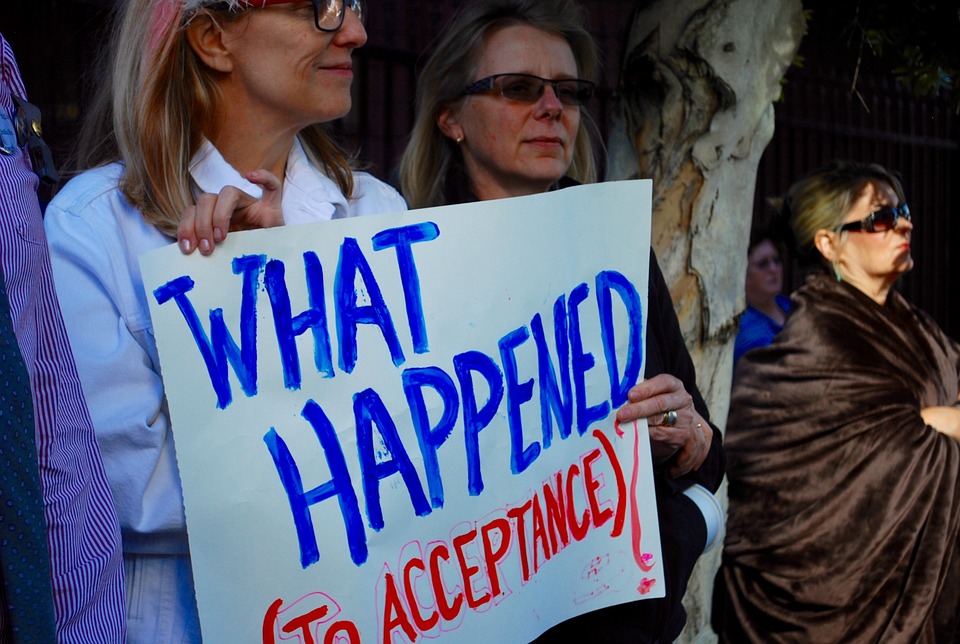 Depending on the facts of the case and the applicable law, a sexual orientation case can be successful for employees. An example is one of the first lawsuits the Equal Employment Opportunity Commission (EEOC) filed claiming that an ex-employee suffered sex discrimination due to her sexual orientation as well as retaliation for reporting the discrimination. As part of a settlement, the former employer agreed to pay a total of $192,200.
Depending on the facts of the case and the applicable law, a sexual orientation case can be successful for employees. An example is one of the first lawsuits the Equal Employment Opportunity Commission (EEOC) filed claiming that an ex-employee suffered sex discrimination due to her sexual orientation as well as retaliation for reporting the discrimination. As part of a settlement, the former employer agreed to pay a total of $192,200.
 The EEOC filed the lawsuit in the U.S. District Court for the District of Maryland against Pallet Companies d/b/a IFCO Systems NA, Inc. The complaint asserted the following facts:
The EEOC filed the lawsuit in the U.S. District Court for the District of Maryland against Pallet Companies d/b/a IFCO Systems NA, Inc. The complaint asserted the following facts:
- IFCO hired a lesbian employee, Yolanda Boone, as a forklift operator.
- Boone was harassed by her supervisor because of her sexual orientation.
- Her supervisor made many comments to her about her sexual orientation and appearance, such as that he wanted her to “like men again,” “I want to turn you back into a woman,” and “You would look good in a dress.”
- At one point, the supervisor blew a kiss at Boone and circled his tongue at her in a suggestive manner.
- Boone reported her supervisor’s behavior to another supervisor, but he did not take any action. The behavior continued, and Boone reported it to the general manager and the company’s employee hotline.
- Afterward, Boone’s supervisors asked her to resign. When she refused, she was terminated and escorted off IFCO’s property by the police.
IFCO agreed to pay Boone a total of $182,200, apportioned as follows:
- $7,200 in back pay with interest, and
- $175,000 in compensatory damages.
IFCO also agreed to pay $10,000 to the Human Rights Campaign Foundation to help pay for its Human Rights Campaign Workplace Equality Program and to retain an expert on sexual orientation, gender identity, and transgender training to help it develop an educational program on LGBT workplace issues.
Federal Law Does Not Explicitly Cover Sexual Orientation Discrimination
 Though no federal court has ruled that sexual orientation discrimination is sex discrimination under Title VII of the Civil Rights Act of 1964, the EEOC has announced its intentions and followed through with actions to make it clear that it will get involved in cases where sexual orientation discrimination is alleged.
Though no federal court has ruled that sexual orientation discrimination is sex discrimination under Title VII of the Civil Rights Act of 1964, the EEOC has announced its intentions and followed through with actions to make it clear that it will get involved in cases where sexual orientation discrimination is alleged.
Twenty-two states (including Maryland) and the District of Columbia have laws expressly prohibiting sexual orientation and/or gender identity discrimination in employment. Title VII of the Civil Rights Act of 1964 prohibits discrimination on the basis of sex, but the wording of the law does not include sexual orientation. New rules for government contractors and subcontractors forbid sexual orientation discrimination against their employees.
A proposed federal law, the Employment Non-Discrimination Act (ENDA), would expressly prohibit employment discrimination due to sexual orientation or gender identity. It has been introduced in almost every Congress since 1994 but has not become law. Due to this lack of action, the EEOC (and many plaintiffs’ attorneys) has turned to Title VII’s prohibition of sex discrimination to cover workplace sexual orientation discrimination.
For more than 20 years after Title VII was passed, courts interpreted Title VII’s sex discrimination provision as strictly covering discrimination where there were actions in favor of employees of one sex over the other. In 1989, the U.S. Supreme Court ruled that sex discrimination also includes discriminatory behavior on the basis of gender stereotypes. In Price Waterhouse v. Hopkins, a female employee lost a promotion because she was not perceived by partners in the firm as “feminine” enough. The Court decided that her employer’s use of gender stereotypes about how a female is supposed to act and look was a form of prohibited sex discrimination.
Though discriminating against an employee because he or she does not look or act like the stereotypical male or female is sex discrimination under Price Waterhouse, no court has taken the next logical step and decided that sex discrimination includes discrimination against people who violate stereotypes by being attracted to those of the same sex. Courts have interpreted sex discrimination as including actions against those who violated gender norms by being transgendered but not because they are a member of the LGBTQ community.
Polls Show the Majority of Americans Think Discrimination Based on Sexual Orientation Is Wrong
The law may follow where the public leads, either through a judicial interpretation of Title VII or the passing of the ENDA.
- The National Opinion Research Center at the University of Chicago found that nearly 70% of the U.S. population in 1973 said same-sex relationships were “always wrong,” while only 43.5% stated that in 2010.
- The Pew Research Center found that from 2001 to 2015, opposition to gay marriage fell from 57% to 39%, while acceptance of it rose from 35% to 55%.
- In July 2015, the U.S. Supreme Court followed public opinion in Obergefell v. Hodges, holding that the Fourteenth Amendment requires states to recognize and license marriage between two people of the same sex.
- One nationwide poll found that a majority of people oppose workplace discrimination based on sexual orientation. Polls covering Texas, North Carolina, Ohio, Utah, Louisiana, and small business owners showed the same results.
Summing It Up
Any lawsuit is a gamble. There are no guarantees of success. Given how long it takes for lawsuits to make their way through the legal system, federal law may change to explicitly prohibit sexual orientation, or federal courts may start to make that interpretation of current law themselves.
To keep your legal claims viable, it helps to have more than one cause of action, above and beyond a Title VII claim of sexual orientation, such as in the Boone case.
- Boone also alleged that she was retaliated against for complaining of discrimination.
- Although not part of her complaint, Boone could have included a claim of discrimination based on sexual orientation in violation of Maryland state law.
- Depending on the facts of your case, you may also have a valid claim for wrongful termination.
If you believe that you have been discriminated against because of your sexual orientation, contact our office so we can talk about your situation, about what laws may apply, and about what steps you can take to protect your interests and legal rights.





